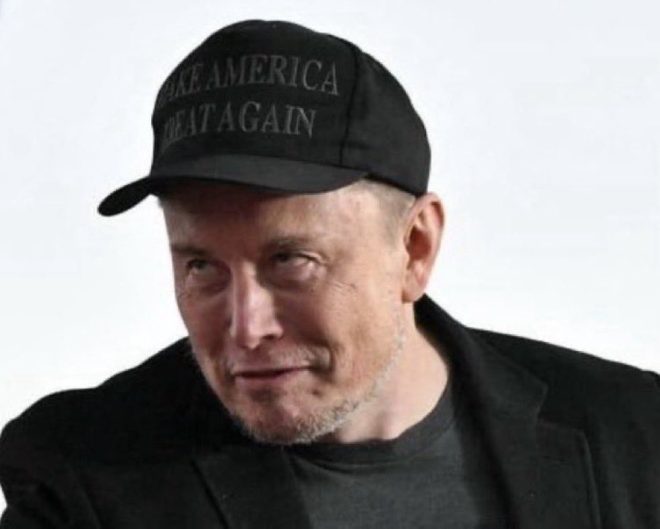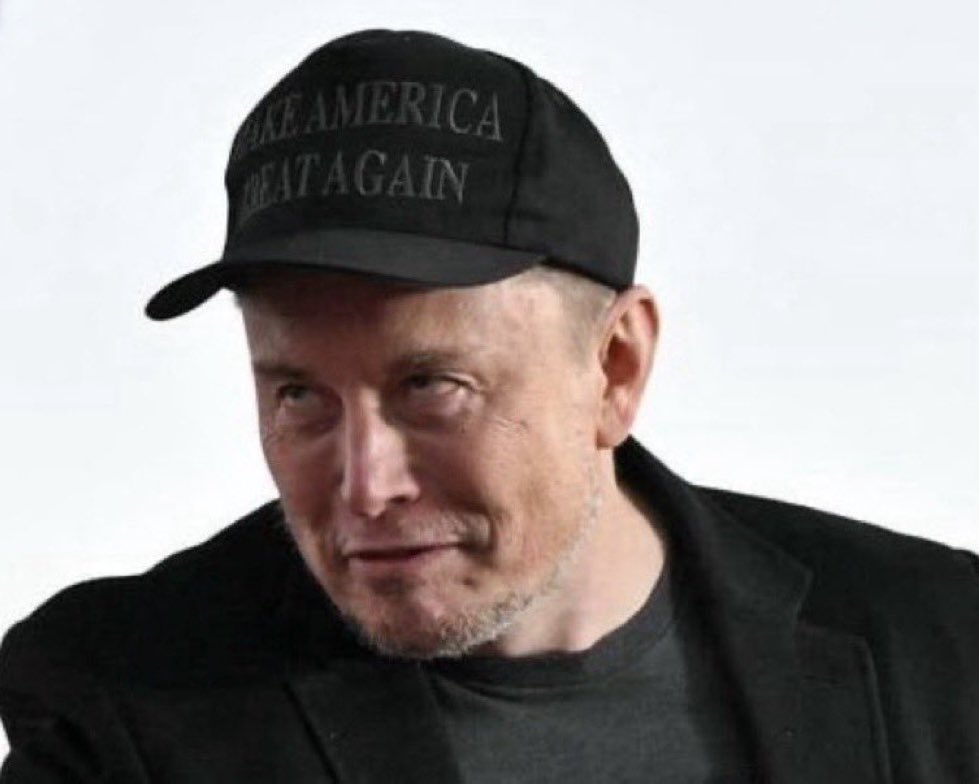
Legal Action Against Elon Musk’s $2M Offer to Wisconsin Voters
In a significant development in the political landscape, Wisconsin Attorney General Josh Kaul announced his intention to initiate legal action against Elon Musk, the CEO of Tesla and SpaceX. This announcement came in response to Musk’s controversial offer of $2 million to Wisconsin voters, made just ahead of the state’s pivotal Supreme Court election. The implications of this situation are vast, as it raises questions about the ethical boundaries of financial influence in elections and the legal ramifications of such actions.
Background of the Situation
The Supreme Court election in Wisconsin is a crucial event that can shape the judicial landscape of the state for years to come. Given the high stakes involved, any external influence, especially in the form of financial incentives, can be seen as an attempt to sway voter behavior. Musk’s decision to offer $2 million to Wisconsin voters has sparked outrage and concern among various political figures and organizations, who argue that such actions undermine the integrity of the electoral process.
Attorney General Josh Kaul, representing the interests of Wisconsin voters and the rule of law, has taken a firm stance against what he perceives as an inappropriate attempt by Musk to meddle in local politics. By announcing his intention to take legal action, Kaul aims to protect the electoral process from undue influence and maintain the principle of fair play in elections.
The Legal and Ethical Implications
The legal action proposed by Kaul raises several important questions about the role of money in politics. In recent years, the influence of wealthy individuals and corporations in electoral processes has come under scrutiny. Critics argue that large financial contributions can drown out the voices of average voters, creating an uneven playing field. This situation serves as a reminder of the ongoing debate about campaign finance laws and the need for transparency in political donations.
- YOU MAY ALSO LIKE TO WATCH THIS TRENDING STORY ON YOUTUBE. Waverly Hills Hospital's Horror Story: The Most Haunted Room 502
Moreover, Musk’s offer could be interpreted as a form of coercion or manipulation, as it may pressure voters to consider financial incentives rather than their genuine beliefs and values when casting their votes. This situation underscores the importance of ethical standards in political campaigns, emphasizing that financial contributions should not overshadow the fundamental democratic principles of free and fair elections.
Public Reaction and Political Fallout
The announcement of Kaul’s legal action has elicited a range of responses from the public and political commentators. Some view Kaul’s decision as a necessary step to uphold the integrity of the electoral process, while others argue that it represents an overreach by government officials. The political fallout from this situation could be significant, influencing both the upcoming Supreme Court election and the broader political landscape in Wisconsin.
Supporters of Kaul’s stance argue that allowing Musk’s financial offer to stand would set a dangerous precedent, potentially inviting further attempts by wealthy individuals to sway elections across the country. Conversely, critics may see this as a political maneuver aimed at discrediting Musk and his influence, particularly given his high-profile status and the controversies often associated with his public persona.
Implications for Future Elections
The events unfolding in Wisconsin may have broader implications for future elections, both in the state and nationwide. As political campaigns continue to evolve in the age of social media and rapid information dissemination, the potential for financial influence in elections is more pronounced than ever. This situation highlights the urgent need for lawmakers to consider reforms that address the complexities of campaign finance and protect the integrity of the electoral process.
One potential avenue for reform could involve stricter regulations on external financial contributions to local elections, ensuring that voters are not subject to undue influence from wealthy individuals. Additionally, transparency in political donations could be enhanced, allowing voters to make informed decisions about the motivations behind financial contributions.
Conclusion
The legal action announced by Wisconsin Attorney General Josh Kaul against Elon Musk’s $2 million offer to voters is a pivotal moment in the ongoing conversation about money in politics. As the state prepares for a critical Supreme Court election, the implications of this situation extend far beyond Wisconsin, prompting a reevaluation of the ethical boundaries governing political contributions and the influence of wealth in democracy.
This case serves as a reminder that protecting the integrity of elections is paramount in maintaining public trust in the democratic process. As more individuals and organizations engage in political discourse, it is essential to ensure that the voices of all voters are heard and respected, free from the overshadowing influence of financial incentives. The outcome of this situation could set important precedents for how election integrity is maintained in the future, shaping the political landscape for years to come.
In summary, the actions taken by Attorney General Kaul reflect a commitment to safeguarding democracy and ensuring that elections remain a true reflection of the will of the people, rather than a playground for the wealthy. With the stakes as high as they are, it is crucial for all stakeholders to engage in constructive dialogue about the future of electoral integrity in Wisconsin and beyond.

JUST IN: Wisconsin Attorney General Josh Kaul says he’ll take legal action today to stop Elon Musk from offering $2M to Wisconsin voters ahead of the state Supreme Court election.
Good. pic.twitter.com/RE9l8Brnw5
— Republicans against Trump (@RpsAgainstTrump) March 28, 2025
JUST IN: Wisconsin Attorney General Josh Kaul Says He’ll Take Legal Action Today to Stop Elon Musk from Offering $2M to Wisconsin Voters Ahead of the State Supreme Court Election
In a bold move that has the political world buzzing, Wisconsin Attorney General Josh Kaul has announced he will take legal action to prevent Elon Musk from offering a whopping $2 million to voters in Wisconsin. This announcement comes just days before the crucial state Supreme Court election, raising questions about the implications of such a financial incentive in the electoral process. So, what’s really going on here? Let’s break it down.
The Context of the Situation
Elon Musk, the billionaire entrepreneur known for his ventures in technology and space, has made headlines for various reasons, but this latest development is particularly intriguing. His offer of $2 million to Wisconsin voters has many scratching their heads. Is this a genuine attempt to engage voters or a strategic maneuver to sway the election outcome? Attorney General Josh Kaul’s quick response indicates that he views this offer as a potential threat to the integrity of the electoral process.
This situation highlights the growing concern about the influence of money in politics. With large sums of money being thrown around, how can voters be sure that their voices are being heard without external influence? Kaul’s legal action is aimed at ensuring a fair election process, free from the potential complications that come with such financial offers.
What Exactly Did Josh Kaul Say?
Josh Kaul, in his statement, made it clear that he believes Musk’s offer undermines the democratic process. He stated, “We cannot allow outside interests to buy influence in our elections.” This sentiment resonates with many who feel that the influence of wealthy individuals and corporations can skew the playing field, ultimately harming the democratic process.
The timing of this announcement is also crucial. With the state Supreme Court election just around the corner, Kaul’s legal action could serve to mobilize voters and draw attention to the importance of fair elections. By taking a stand against Musk’s financial offer, he’s reinforcing the idea that democracy should be preserved and protected at all costs.
The Potential Legal Ramifications
Now that Kaul has decided to pursue legal action, many are left wondering what the next steps will be. What laws could Musk potentially be violating, and how might this play out in court? Legal experts suggest that Kaul may argue that Musk’s financial incentive could be seen as an attempt to influence voters in a way that is not permissible under state or federal election laws.
It’s worth noting that campaign finance laws are designed to limit the influence of money in politics. If Musk’s offer is deemed to violate these laws, the consequences could be significant—not just for Musk, but for the perception of campaign finance as a whole. Moreover, if successful, Kaul’s actions could set a precedent for how similar cases are handled in the future, potentially leading to stricter regulations on financial influence in elections.
The Response from Elon Musk and His Supporters
While Kaul is taking a firm stance against Musk’s offer, it’s important to consider how Musk and his supporters might respond. Musk is known for his outspoken nature, particularly on social media platforms like Twitter. It wouldn’t be surprising if he publicly defended his actions, claiming that his intention was to encourage voter participation rather than to manipulate the election outcome.
Supporters of Musk may argue that financial incentives can help boost voter turnout, particularly in low-engagement areas. They might suggest that rather than focusing on the negative implications of such offers, we should consider the potential benefits of increased electoral participation. However, this perspective does not address the fundamental concerns about the integrity of the electoral process.
Public Reaction and Implications for Future Elections
The public reaction to this situation has been mixed. Some people applaud Kaul for taking a stand against what they see as an attempt to corrupt the electoral process, while others view it as an overreach of government authority. This division reflects broader sentiments about campaign finance and the role of money in politics, which continues to be a hot-button issue across the country.
As we approach the state Supreme Court election, the implications of this legal action could extend far beyond Wisconsin. If Kaul’s efforts succeed, they could inspire similar actions in other states, leading to a reevaluation of how financial incentives are treated within the context of elections. This could ultimately lead to a more transparent and equitable electoral process, which is a goal that many Americans can get behind.
The Broader Picture: Money in Politics
This incident serves as a reminder of the broader conversation about money in politics. The influence of wealthy individuals and corporations can create significant disparities in how elections are conducted and how candidates are able to campaign. As voters, it’s essential to remain vigilant and informed about these dynamics, ensuring that our electoral system remains robust and fair.
Organizations advocating for campaign finance reform have long argued that changes need to be made to reduce the influence of money in politics. They argue that a more equitable system would encourage diverse candidates to enter the political arena, ultimately leading to a healthier democracy. This incident with Musk could be a catalyst for change, pushing lawmakers and citizens alike to rethink the current state of campaign finance.
Conclusion: The Importance of Fair Elections
As we navigate this complex situation involving Elon Musk, Josh Kaul, and the Wisconsin Supreme Court election, one thing is clear: the integrity of our electoral process is crucial. Legal actions like Kaul’s demonstrate a commitment to preserving democracy and ensuring that every voter’s voice is heard without undue influence. As citizens, we must stay engaged, informed, and active in advocating for fair elections, ensuring that our democracy remains strong for generations to come.
In the end, this moment serves as a reminder that each of us has a role to play in safeguarding the democratic process. Whether it’s by voting, advocating for change, or simply staying informed, our collective efforts can help shape the future of politics in America.
